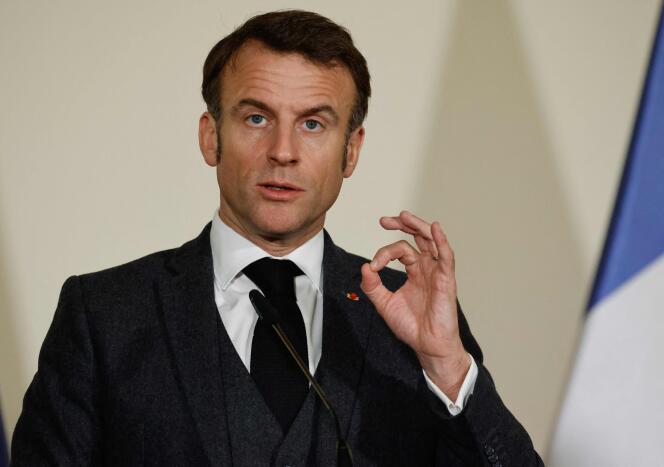


It is rare for President Emmanuel Macron to meet with his predecessor François Hollande for it to be a sign of the seriousness of the situation. On Wednesday, March 6, Hollande walked through the doors of the Elysée Palace and headed for the presidential office, where Macron awaited. Next to a Pierre Soulages painting, the two presidents talked about the war in Ukraine and the tendency of public opinion to forget about it. Another former president, Nicolas Sarkozy, who had also been invited for a meeting with Macron, was forced to wait outside for his turn, as Hollande spent a little over his allotted hour.
Hollande had a few words of advice for his successor, having lived through the 2014 pro-European Maidan revolution in Kyiv during his term in office, which was the source of much of Russian President Vladimir Putin's fury. From the steps of the Elysée, Hollande confided to a few journalists that in diplomacy – particularly with the head of the Kremlin, who, according to the former president, only understands shows of strength – it's best "not to say what you're going to do and to do what you haven't said." He emphasized his point: "The less we say, the better we do," before leaving the presidential palace. Such is the logic of deterrence, according to Hollande.
Sarkozy, who slipped out of the palace away from the cameras after his interview, was less forthcoming. Maybe he felt that he'd already said it all in his book, Le Temps des Combats ("The Time of Battles"). In it, he wrote, referring to Ukraine, that "France is wrong to deliver a continuous flow of weapons to one of the belligerents." It should be noted, however, that the French National Financial Prosecutor's Office opened an investigation in 2020 into why Sarkozy had received a €500,000 payment from a Russian insurance company, RESO-Garantia, as part of a €3 million consultancy contract drawn up in 2019.
The Elysée Palace said that Macron wanted to "consult" and "gather the opinions" of his peers on this major geopolitical crisis. At the end of a summit on Ukraine in Paris on February 26, the president stated that there was "no consensus today to send troops on the ground in an official, accepted and endorsed manner" – but also that "no option should be discarded." This provoked an international uproar and domestic outcry.
NATO tempered the comments, while the French opposition parties criticized the president's "war-mongering" behavior, accused by his critics of accelerating the start of a third world war. "Emmanuel Macron is playing warlord, but it's our children's lives he's so carelessly talking about," said far-right leader Marine Le Pen on X.
You have 57.85% of this article left to read. The rest is for subscribers only.
